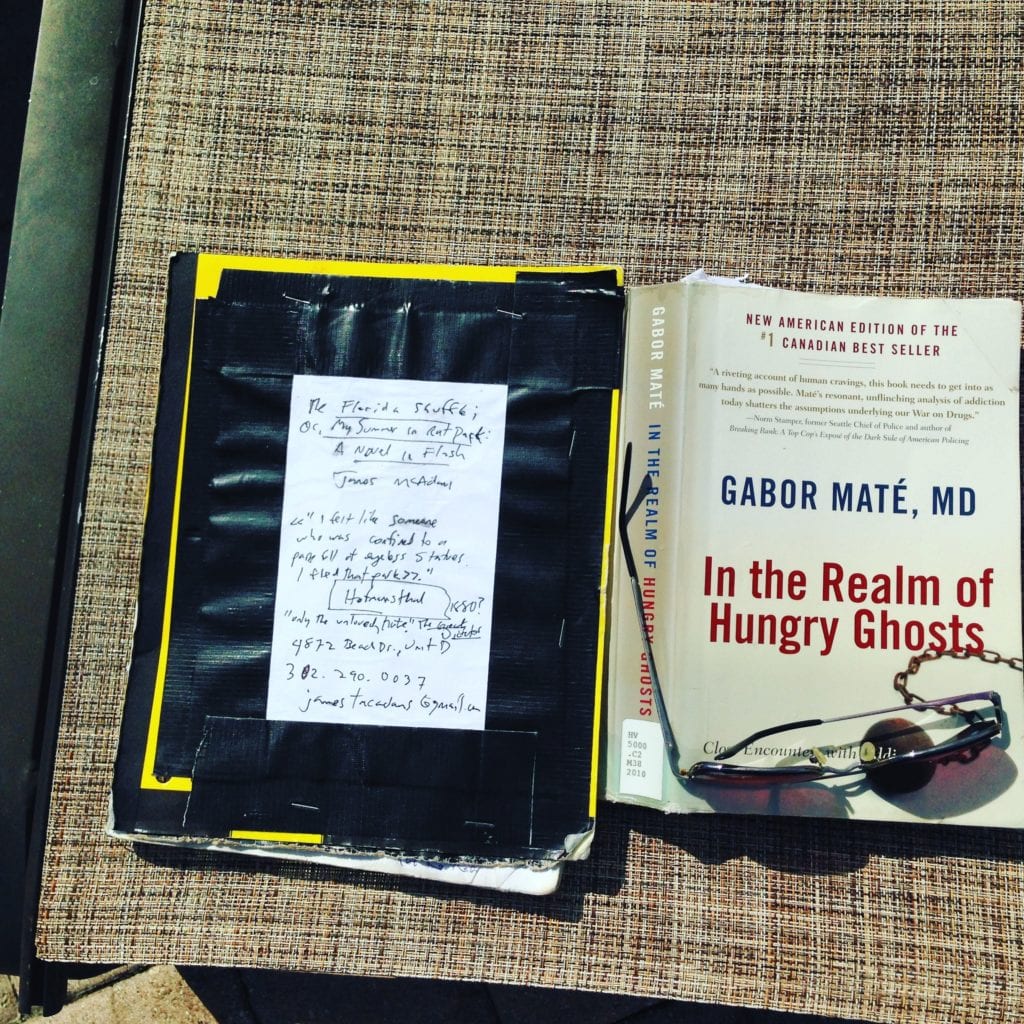Addiction is the New Porn
James McAdams | 04.19.2020

So, you don’t know much about me or my project yet, but really quickly it’s a novel (or “novel-in-flash”) exploring “The Florida Shuffle,” which denotes the constellation of nefarious, exploitative, and (increasingly) illegal sober homes and treatment centers established along “Rehab Alley” from West Palm To Delray. The concept derives from this basic economic fact: for recovery homes, there is no profit in recovery. You need to keep people wanting to get clean but unable to, and so you, as an evil owner of a sober home, do a lot of invisible, micro-aggressive things that promote recidivism. Hence: the spectacle of addiction porn.
Recidivism, oddly, is sexier than recovery, as Leslie Jamison astutely argues in The Recovering: Intoxication and its Aftermath. Think of the hundreds of pieces of media produced over the last two decades, roughly the beginning of the modern memoir phase (coinciding with the rise of the opioid epidemic): Augusten Burroughs, Elizabeth Wurtzel, Carrie Fisher, William Burroughs; TV like Intervention, Dopesick Nation, The Wire, Ozark, Breaking Bad, Narcos, Zero Zero Zero; movies like Requiem for a Dream, Permanent Midnight, Trainspotting, Beautiful Boy, Blow. Addiction is the new porn.
Taken individually, these are all remarkably cool sincere accounts of addiction and I recommend them. But, taken as a whole, they probably say something about our culture that these are so popular. Here’s the thesis: we pretend we watch these so we can better understand suffering family members, or empathize with the plight of fellow humans, or learn to recognize signs in colleagues who might need help. However, I’m pretty sure we watch/view/read these accounts because there’s something fun and gripping about that them.
Thus, thesis #2, correlated with above: I am writing a book about drug addiction, but I don’t want to describe people having sex with Pitbulls for a bag, or tweakers microwaving children when they’re high. Unlike Wallace’s Infinite Jest or Denis Johnson’s Jesus’ Son, two of my favorite books, I’m trying to write about rehab by demarcating from within all references to drug use. So, I’m trying to write a novel about drugs but taking out all the stuff about drugs that is interesting and entertaining. Sounds like quite a read, doesn’t it?
My solution? Shift the camera from the addicts/clients/patients to the staff operating the facility. These places are underfunded and pay maybe $10/hr, and thus are staffed almost completely by the underemployed. These are my people: the resident advisors, human health aides, case managers, “rehabmetricians,” “addictionologists.” Use whatever fancy euphemism you’d like, More than you can imagine. I worked a similar job in my 20s and learned to cook for 20, clean ovens, take the GED, and balance a check while teaching them, my friends—I was here to show them the way, to model appropriate behaviors, to gently teach how to live.
I was the priest of the new church of recovery, a bit actor on a porn set, where addiction was the star. In the end, I was the one who learned everything. (This is what we say in my real job as a professor too, that the students teach you.) And so this, not nightly blackouts, Silk Road scams, Qualalude-incontinence, or doctor-shopping, is what I want my “drug novel” to be about.


